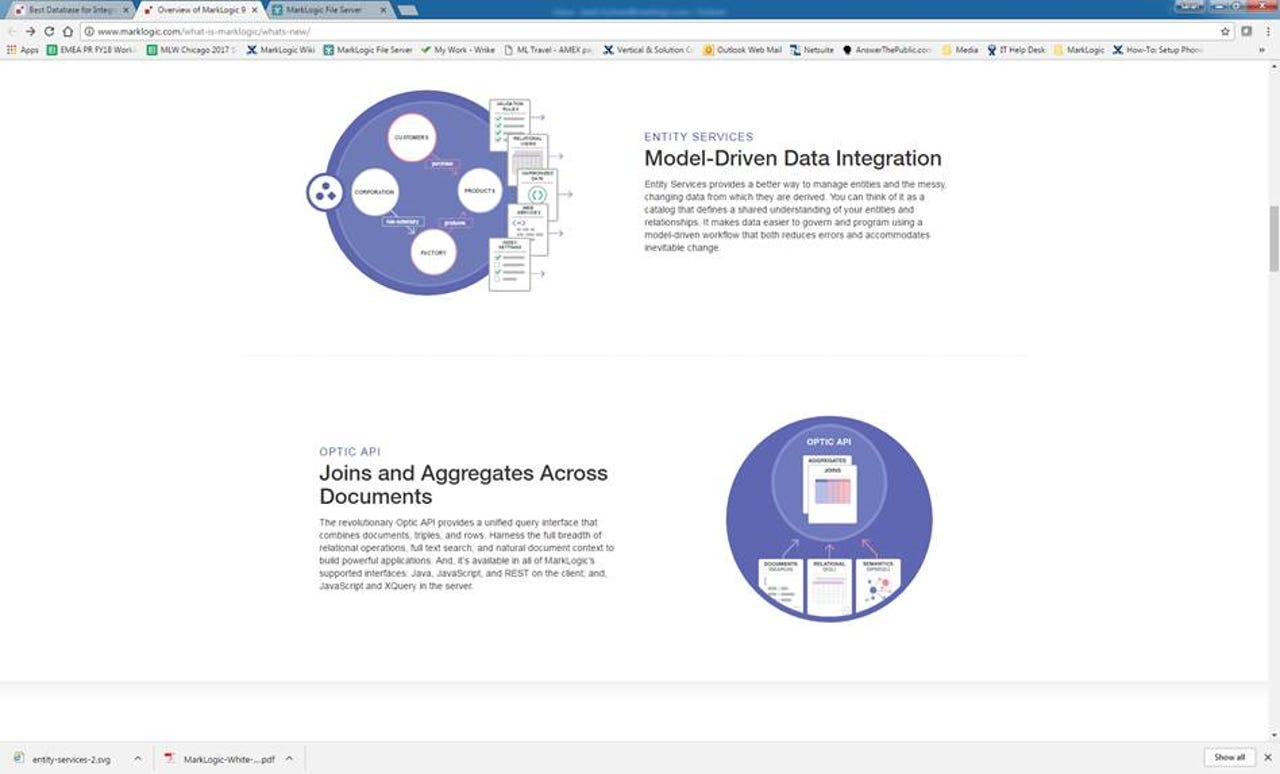MarkLogic 9 launched with big data in mind


MarkLogic on Tuesday is launching MarkLogic 9 out of beta, the latest version of its non-relational, document-based (NoSQL) database platform.
The new features include security and data management capabilities that companies need to take full advantage of their data, executive vice president Joe Pasqua told ZDNet.
Featured
Large enterprises are faced with a "major dilemma" with the rise of big data, he said.
"They're really motivated to find more ways to get value out of their data," Pasqua said. "At the same time, there's an increasing set of regulatory requirements on how data is managed... You want to make sure the wrong people aren't getting their hands on it."
The launch of MarkLogic 9, he said, was largely drive by "the notion of how you enable more sharing with less risk."
That starts with new security features, including element-level security. This allows specific elements of documents to be hidden from particular users. In other words, if a document has useful information, it can be broadly distributed -- with sensitive information securely hidden. For even more fine-grained control, MarkLogic 9 also comes with redaction capabilities. The redaction capabilities could allow you, for instance, to share some information (such as a person's zip code) while redacting other, closely linked pieces of information (such as a person's phone number).
The updated platform also includes new integration and data management capabilities. With Entity Services, an organization can define a model and vocabulary to harmonize different kinds of data. Built with MarkLogic's existing Semantics capabilities, Entity Services helps organizations understand how their different pieces of data relate to each other. For instance, a company could learn about the ways customers relate to products -- whether they buy, return or open support tickets for various items.
Meanwhile, with a new query interface called Optic API, developers can combine documents, triples and rows to view data in the format of their choice. When MarkLogic built Optic, it was also able to rewrite its SQL interface for organizations that want to use BI tools like Tableau.
Along with the need to leverage big data, Pasqua said that MarkLogic's customers are looking for products and services that can help them handle the evolving regulatory environment, as well as ways to ease the move to the cloud.
Virtually all of MarkLogic's customers are still running on premises, Pasqua said, but more and more organizations are moving parts of their workload to the cloud.
"It's really an enabler," he said. "People want to do more with their data, but they couldn't give you a catalog of everything they want to do and [the resources] it would take. The cloud is giving people the opportunity to implement the programs they want in a flexible way. It's not always cheaper, but it does provide this flexibility that's really important."